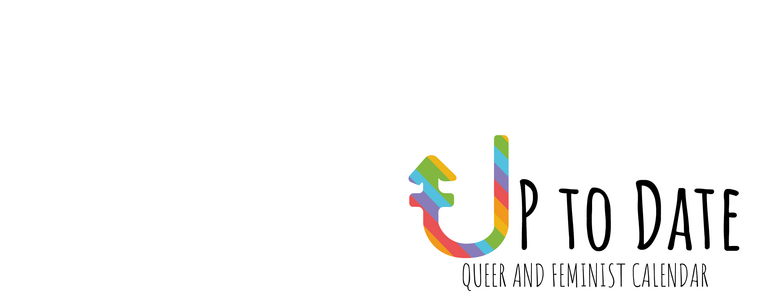Coming Out Day (international)
Coming Out Day has been celebrated annually on October 11 since 1988 and draws attention to the discrimination faced by LGBTIQ+ people during and after their coming out.
At the same time, people who are not yet out should be encouraged to come out themselves. As a sign of solidarity, rainbow flags are flying on the TU Dortmund University campus today.
The day of action goes back to the second "March on Washington for Lesbian and Gay Rights" on October 11, 1987. On this day, over half a million people gathered in Washington D.C. (USA) to demonstrate for the rights and equality of homosexuals. In the months that followed, Rob Eichberg, co-founder of the empowerment program The Experience, and Jean O'Leary, then director of the National Gay Rights Advocates, proposed the introduction of a National Coming Out Day. One year later, the first Coming Out Day was celebrated, on which thousands of lesbians and gay men came out by having their names published in US newspapers (Thompson 1994). Today, the day is celebrated in many countries.
Coming out must still matter because there's still a closet to come out from. (Spiegel 2013)
The assumption that all people are heterosexual and cisgender still makes it necessary for LGBTIQ+ people to come out. In addition to the internal coming out, a special focus will be placed today on the first external coming out. For young people, there can be several months or years between coming out internally and coming out externally for the first time. Reasons for this include fear of rejection, worries about not being taken seriously or financial dependence on parents (Krell & Oldemeier 2015). Coming Out Day is intended to encourage closeted LGBTIQ+ people to come out themselves. At the same time, awareness is raised today that every new encounter after the first coming often requires a new coming out to be it with new friends, family members, teachers, classmates, neighbors, colleagues, supervisors, doctors or people in sports clubs or certain offices.
The debates surrounding the coming out of male professional soccer players or the #actout campaign, in which a total of 185 LGBTIQ-actors came out together in 2021, clearly show that coming out in Germany is not a matter of course, especially in public. For LGBTIQ+ people outside the public eye, coming out at work continues to be associated with risks and discrimination and is far from commonplace in Germany (Sehnert & Zawadzki 2019; Frohn et al. 2020; LSVD 2020; de Vries 2020; Frohn & Heiligers 2021).
Coming Out Day is used to draw attention to discrimination during and after coming out, to demand measures for improvement and to show solidarity. At the same time, there are many campaigns by LGBTIQ+ people who come out publicly (again) and tell their coming out stories to encourage others to come out themselves.
Coming out counseling centers in Dortmund
Last updated: August 2025
Sources (in German)
- de Vries, L., Fischer, M., Kasprowski, D., Kroh, M., Kühne, S., Richter D. & Zindel, Z. (2020): LGBTQI*-Menschen am Arbeitsmarkt: hoch gebildet und oftmals diskriminiert. In: Deutsches Institut für Wirtschaftsforschung, Wochenbericht (36). Last accessed: 04.10.2023.
- Frohn, D., Wiens, M., Buhl, S., Peitzmann M. & Heiligers, N. (2020): »Inter* im Office?!« Die Arbeitssituation von inter* Personen in Deutschland unter differenzieller Perspektive zu (endo*) LSBT*Q+ Personen. IDA | Institut für Diversity- & Antidiskriminierungsforschung. Last accessed: 04.10.2023.
- Frohn, D. & Heiligers, N. (2021): Bi & Pan im Office?!« Die Arbeitssituation von bi- und pansexuellen Personen in Deutschland. IDA | Institut für Diversity- & Antidiskriminierungsforschung. Last accessed: 04.10.2023.
- Krell, Claudia & Oldemeier, Kerstin (2015): Coming-out – und dann…?! Ein DJI-Forschungsprojekt zur Lebenssituation von lesbischen, schwulen, bisexuellen und trans* Jugendlichen und jungen Erwachsenen. München: Deutschen Jugendinstitut e.V.
- LSVD (2020): Arbeitsplatz: Offenheit und Diskriminierung von Lesben Schwulen Bisexuellen trans- und intergeschlechtlichen Menschen (LSBTI). Lesben und Schwulenverband. Last accessed: 04.10.2023.
- Sehnert, H. & Zawadzki, A. (2019): Proud@Work. Boston Consulting Group. Last accessed: 04.10.2023.
- Spiegel, Adrienne (2013): Coming Out Still Matters. ACLU vom 11.10.2013.
- Thompson, Mark (1994): Long Road to Freedom: The Advocate. History of the Gay and Lesbian Movement. New York: St Marins Press.





